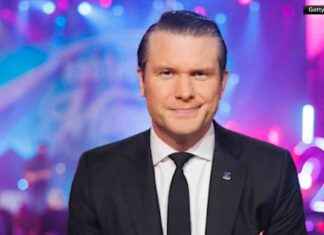“Boss, don’t get hurt!” jokes the shooting guard for Maria Eugènia Gay (Barcelona, ??1975), while the Government delegate in Catalonia runs towards the ball and shoots. Gay has played soccer since she was a child, and although she has only practiced with her children for a long time, she has put on her Barça shirt, shorts and boots, in support of the players of the Spanish team.
The appointment with this lawyer, a specialist in civil procedural law, is next to the Velòdrom de Barcelona, ??which has a 7-a-side soccer field. Gay was dean of the Col·legi de l’Advocacia de Barcelona (ICAB) for five years, and was also President of the Consell de l’Advocacia Catalana and Vice President of the Spanish Bar Council, until Pedro Sánchez called her in January to relieve Teresa Cunillera. The transfer was fast. “I understood very well what they wanted from me,” she explains.
Actually, it was about keeping his navigation sheet heading towards the thaw, with coordinates that Salvador Illa also manages in Catalonia. Gay is a specialist in de-judicialization and was a pioneer in the promotion of mediation, with the first master’s degree on the matter at the ICAB, to promote the culture of pact and that the parties are able to reach an agreement and avoid the courts.
Her stage as dean began in July 2017, on the eve of the independence referendum, and her efforts at the head of the institution, with a plural Board that included, among others, Jordi Pina and Olga Arderiu – lawyers for leaders of the 1 -Or in the trial in the Supreme Court– was to maintain neutrality, a task complicated by the pressures that came from all sides.
One of his initiatives was to create, three days after 1-O, a commission for mediation, dialogue and conciliation, with the consensus of employers, unions and universities, to which more than 150 entities joined with the will to “try to defuse and open a dialogue ”, he details. He presented the initiative to the Catalan and Spanish governments, and to Congress. “Pedro Sánchez and Meritxell Batet received me from the PSOE, there I met him and I explained to him how I thought we could overcome the situation,” he says.
Sánchez and Gay continued to meet at events. She would always say hello. She does it with everyone. She is media and knows how to move in public relations. She is soccer tiqui-taca, short and precise passes, without losing the ball.
In Madrid, she has established herself as a prestigious Catalan jurist, with various awards, including the Cross of San Raimundo de Peñafort. Her last name opens doors for her. Her father is Eugeni Gay, a lawyer and former magistrate and vice president of the Constitutional Court, progressive, and one of the defenders of the Statute, in whose particular vote on the sentence he did not spare criticism of his colleagues and defended the conception of Catalonia as a nation.
As head of international relations for the Spanish Lawyers, he traveled extensively on behalf of Spain to congresses, seminars and other forums. In the years of the process, she replicated the campaigns of the independence movement that questioned Spanish democracy. “They asked me with concern. They were powerful campaigns, they did their job well. I had to put the context and defend that our democracy is robust, ”she admits.
The childhood of Maria Eugènia Gay and her three brothers is linked to the family law firm, opened in the seventies. “At the age of five I already thought that I wanted to help the vulnerable as my father did, a great defender of democracy and judicial independence. I remember him as a tireless worker. And reading, listening to music… every morning he would wake us up with Gregorian chant!”, she laughs.
On Saturdays, the brothers sang in the children’s choir L’Esquitx. But she prefers rock. “I’m an absolute fan of Bruce Springsteen, going to all the concerts and knowing the lyrics, and Tina Turner,” she says. Neither did she miss a Sopa de Cabra, Sau or Els Pets concert.
He studied at the Jesuits and at the Universitat Abad Oliba. And he was always on the soccer team and the theater group. In her university years, under the tutelage of Mercè Puy, she was Antígona, and the bride of Bodas de Sangre. “I took the role of Antigone, as defender of the rights and dignity of the family, and I have not left it in my life”, she laughs.
In addition to the Gregorian, her father introduced her to reading the classics. “Friendship, by Cicero, marked me by giving without expecting anything. I am sociable; At home, with four children, where three eat, fifteen eat. And I think I can handle everything… ”, she assures, as she heads towards the locker room, from where he will come out short and with the Barça shirt, touching the ball.








